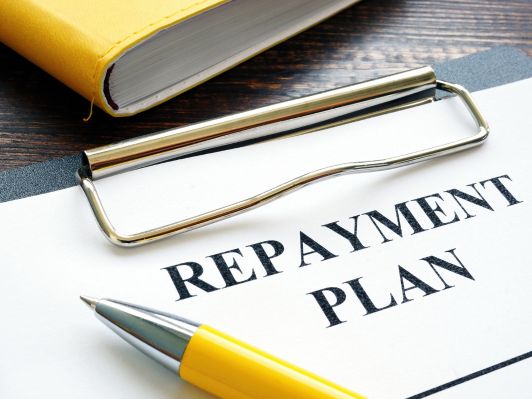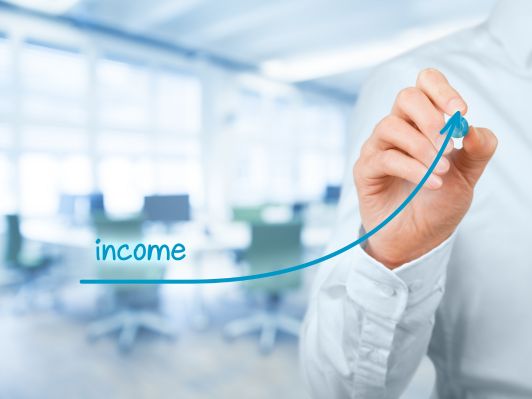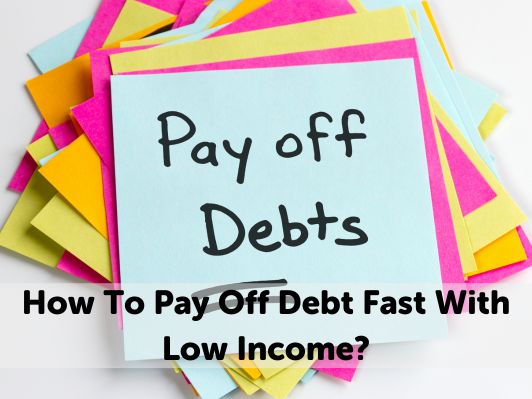Debt has a greater influence on your life than you might realise. It has an impact on your mental health in addition to your financial situation.
According to data from the Office of National Statistics, 22% of people who were using credit or loans more frequently than normal had low happiness levels. The good news is that, even with a little earning, you can learn how to quickly get out of debt.
Learning how to pay off debt fast with low income can be divided into three essential parts.
We can break down the process of learning how to pay off debt fast with low income into three key steps.
- Saving more money
- Trying to reduce your debt through consolidation, debt relief, and other measures
- Tackling your debt strategically with a suitable approach
Practical Strategies To Save More Money To Pay Off Debt Fast
1. Avoid Taking On New Debts
Prioritize paying off your existing debt before you take up any new loans. If you have planned to take debt for any major purchases or expenses, consider putting them on hold for a while. If you use a credit card for your expenses, try to spend only what you can actually pay back.
2. Find Out the Precise Amount you owe
You must have a clear goal in mind before you can figure out how to get out of debt fast. Find out from your lenders how much debt remains due on your personal loans, mortgages, and other liabilities.
Make a list of the amounts you owe to each person from your list of friends and relatives if you have borrowed money from them. You can start concentrating on what you can do to address your debt once you have a specific goal in mind.
3. Create a Repayment Plan

Having a clear plan of action will make it more likely that you will achieve your targets. Write down the minimum loan repayments that you have to make every month and compare the figure with your monthly income. The difference between the two is what you need to save per month. If you are currently not saving enough, you may need to reduce your expenses or increase your income.
4. Cut Down Your Living Expenses
This is a helpful step in learning how to pay off debt fast with low income. Review your bank statements and make a list of all the expenses you made in the last month. You can categorize them into heads like rent, food, entertainment, clothing, and such to track where your money is going.
Once you prepare this, review it to find out places where you can cut some corners. Here are some ways you can reduce your monthly living expenses.
- Move to a smaller flat to save rent
- Look for a flatmate to split the rent
- Get clothing from thrift stores or budget-friendly stores
- Look for cheaper ways of recreation like hiking, walking in the local park, or going for a picnic
- Work out at home instead of going to the gym
- Cancel the subscriptions that you can live without
5. Increase Your Income

No matter how hard you try, you cannot reduce your expenses after a certain limit. You have to spend on rent, food, groceries, and other essentials to live a good life. That’s why the fastest way to pay off debts is to start earning more. As more money will come in, you can make higher repayments to pay off debts fast.
Here are some examples of what you can do to increase your income.
- Pick up an extra shift at your current job
- Ask your employer for a raise or a promotion
- Look for a higher-paying job in your field of work
- Turn your hobbies into a business. For instance, if you enjoy painting, try selling some paintings online. If you are a good writer, try picking up some freelance writing work online over the weekend.
- Get a weekend job at a local grocery store or a clothing store or a restaurant.
6. Take Help From the Government
The UK Government provides various benefits and support services for those who earn a low income. Check the Government website to find out what benefits you are eligible for and try to make the most of them. Have you tried:
- Universal credit: Those who are eligible for universal credit can get help with their cost of living if they are out of work, unable to work or earning a low income.
- Local council help: Your local council can help you with your energy bills, water bills, food costs, and other essential expenses if you are struggling to keep up with them. Each local council has their own eligibility criteria and other conditions. Check with your local council to find out what help you can get.
7. Improve Your Credit Score
If you have a poor credit score, it is likely that your lenders are charging a high-interest rate from you. It is quite possible that the minimum payments of loans with a high interest rate mostly consist of interest payments, and you are not repaying the principal amount at all.
Having a good credit score will help you negotiate with your lenders for a better interest rate.
Despite having a low income, you can improve your credit score. Here are some things you can do to increase it.
- Pay your loan instalments and credit card bills on time.
- Keep your credit utilization low. Try to use only around 30% of your credit limit as a rule of thumb.
- Get your name on the electoral roll
- Check your credit reports to ensure that there are no errors or inconsistencies
Remember- the sooner you start working on improving your score, the faster it will improve.
8. Create an Emergency Fund
We get that you want to put all your extra money in paying off your debt. But it’s extremely important to establish an emergency fund for rainy days. Life is unpredictable and you may need to deal with unexpected emergency costs at any time.
If you do not have emergency fund, you will need to take up even more debt for tackling emergency situations. This will only worsen your current situation.
As a rule of thumb, you should save six months’ worth of your essential expenses as your emergency fund. However, keeping your low paycheck in mind, you can start with a small goal. For example, aim to create an emergency fund of £1,000 first.
Once you achieve it, increase your goal to saving up enough to cover your one month’s essential expenses like rent, groceries, and essential clothing.
9. Track Your Progress and Adjust Your Plans
No matter how hard you try, you cannot make a foolproof debt repayment plan. You will have to make adjustments as and when the situation changes. Keep tracking your progress in repaying your debt using debt-tracking apps, spreadsheets, or a simple notebook. Pay attention to any changes in interest rate, changes in laws, inflation, etc. With every change, make relevant adjustments to your debt repayment plan.
10. Take Independent Advice
If you are unsure about how to get out of debt fast, you can seek independent advice about your debts. There are plenty of services in the UK that offer independent and confidential advice about paying off your loans. The best part is- many of these services provide this advice free of cost.
Check out this blog post about how to save money fast on a low income for more tips and tricks.
Two Proven Approaches to Get Out of Debt Quickly
If you have multiple types of debts of various durations and interest rates, you might get confused about where to start. Should you start by paying off those credit card bills, or should you tackle your mortgage first?
Honestly, there’s no uniform answer to this. Each situation requires a different approach. However, here are the two most widely followed approaches of paying off debt fast.
1. Debt Snowball Method
This approach recommends paying off your smallest debt first. Once it is paid off, you start paying off the next smallest debt you have. One has to repeat this process until the entire outstanding debt is paid off.
This strategy can be helpful for those who struggle with being disciplined. It will be a long time until you can make a dent in your outstanding housing loan. However, clearing a small credit card bill will motivate you to keep saving more.
2. Debt Avalanche Method
Under this method, you start by paying off the debt having the highest interest rate. Once it is fully paid off, you move on to the debt with the next-highest rate. By clearing your most expensive loans first, you end up saving money over the long run.
If you are impatient and need motivation to keep going, this method may not be for you. If your high-interest loan is huge, it will take months or a few years to pay off. This approach can feel discouraging, and you may get back into your old habits of not saving money.
It’s wise to determine your approach before you begin to pay off your debts. Decide the approach that suits your situation and start to pay off your debts.
Debt Consolidation and Debt Relief Options To Pay Off Debts Faster
If you are struggling to meet your monthly loan instalments, you can look at debt consolidation and debt relief options.
1. Debt Consolidation Loans
Currently, you may have different types of debts such as credit card debt, housing loans, and personal loan, in your name. Debt consolidation loan refers to taking up a single loan to pay off all your existing debts. This allows you to consolidate multiple liabilities with different interest rates and due dates so that your dues become easier to manage.
2. Debt Management Plans (DMP)
A debt management plan is an agreement between you and your creditors. You pay a consolidated amount to your DMP service provider, and they will split it up between your creditors. DMP service providers help you work out an affordable payment arrangement with your creditors. You can use a debt management plan for credit card bills, payday loans, personal loan, overdrafts, and other non-priority debts.
3. Debt Settlement
Debt settlement refers to giving a one-time full and final debt payment offer to your creditors. You pay them back with a lump sum amount to settle the entire amount outstanding with them.
For instance, you could offer your creditors to accept a one-time payment of 80% of your outstanding debt. The percentage can be negotiated with your creditors.
4. Individual Voluntary Arrangement (IVA)
Under an Individual Voluntary Arrangement, you agree to make regular payments to an Insolvency Practitioner who will distribute them among your creditors. You need to provide details about your assets, debts, income, and creditors to your Insolvency Practitioner.
They will determine the amount of debt payments and the duration of the arrangement and will communicate to your creditors on your behalf. Insolvency is a serious matter. Make sure you seek specialist advice before you undertake this. It can be costly and impact your credit score.
5. Filing for Bankruptcy
If you have exhausted all other ways of repaying your debts, you can apply for bankruptcy. This process ensures that your assets are divided fairly among all your creditors and provides you with an opportunity for a fresh start (with certain restrictions).
However, be aware that this is a serious move that will have a long-lasting impact on your life. You can file for bankruptcy online through the UK Government’s website.
6. Debt Relief Order (DRO)
A debt relief order allows you to stop making payments for your debts (including interest) for 12 months. You can be eligible for a DRO if-
- You owe less than £30,000
- You do not own a house and
- Your spare income is less than £75 per month.
You should take legal advice before deciding which method you should opt for.
To Sum it Up
Being in debt can be unsettling, especially for those who aren’t earning a big paycheck every month. However, that doesn’t mean that you have to stay in the debt trap forever. By using proper strategies and being disciplined, you can learn how to pay off debts fast despite earning less. Use the tips and strategies mentioned above to start your journey towards living a financially sound and debt-free life.




![How to Use a Credit Card to Build Credit? [5 Steps Guide] How to Use a Credit Card to Build Credit](https://www.drafty.co.uk/blog/wp-content/uploads/2023/10/How-to-Use-a-Credit-Card-to-Build-Credit-218x150.jpg)